Every September 11, the streets of Barcelona and towns across Catalonia fill with flags, music, and a unique sense of identity. Known as La Diada, this day is not just a holiday: it is a moment of remembrance and a powerful expression of Catalan culture and history. For visitors, it can be one of the most striking and unforgettable experiences of their time in Barcelona.
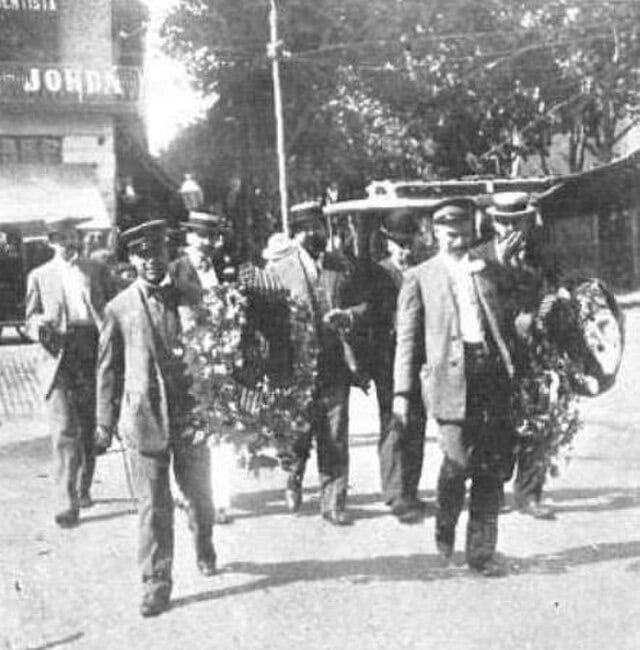
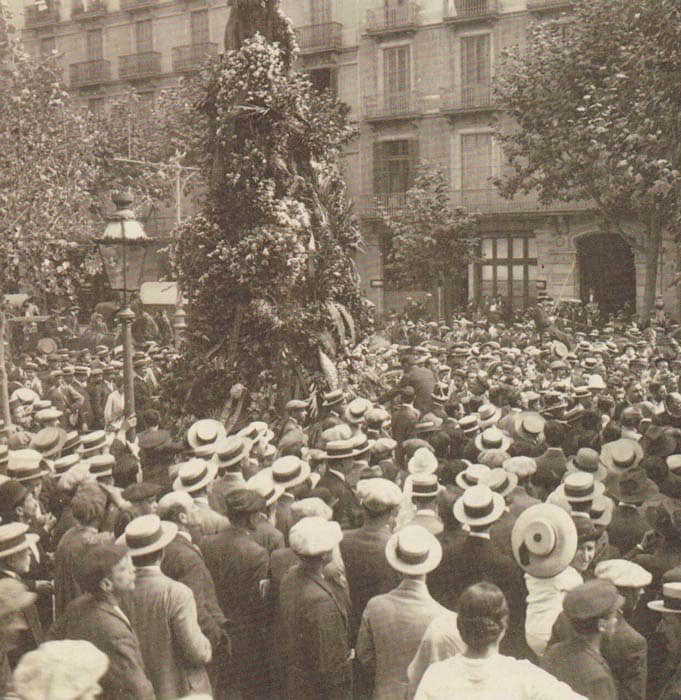
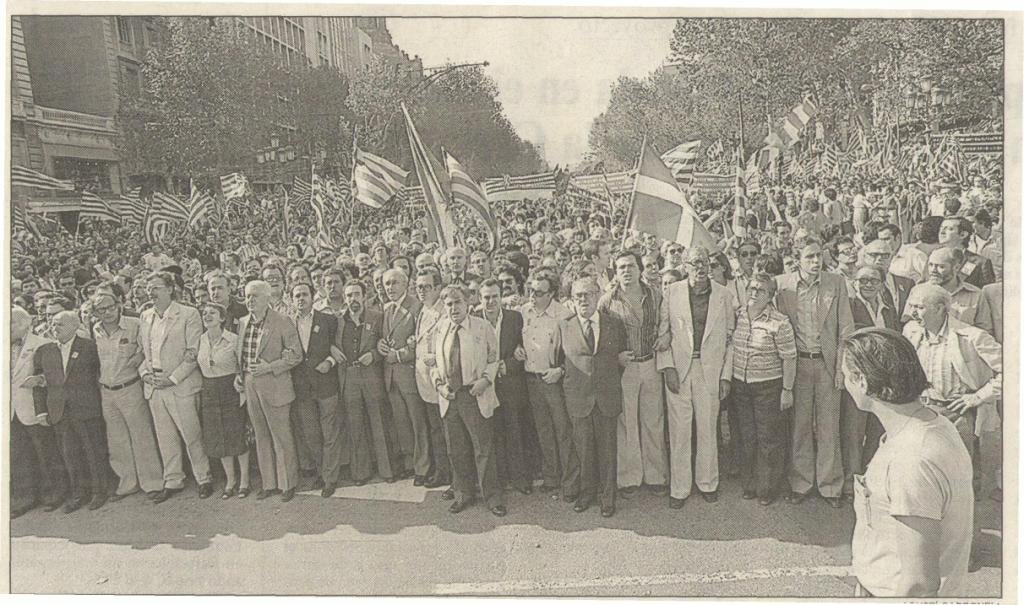
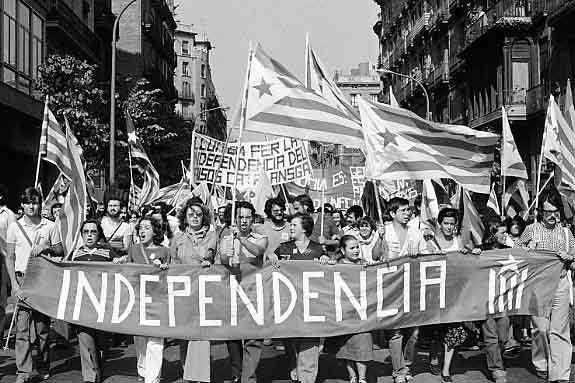
A bit of history: why is La Diada celebrated?
The fall of Barcelona in 1714
The origins of La Diada go back to the War of the Spanish Succession. On September 11, 1714, after more than a year of siege, Barcelona fell to the troops of King Philip V of Spain. The defeat marked the end of Catalonia’s medieval institutions and freedoms, as the king imposed the Nueva Planta decrees, centralizing power in Madrid.
Rafael Casanova and the spirit of resistance
One of the most symbolic figures of that day is Rafael Casanova, the commander of Barcelona’s defense. Although defeated, his legacy became a symbol of courage and resistance. Today, floral tributes are offered at his monument in Barcelona every September 11.
From repression to recovery
During the Franco dictatorship (1939–1975), public celebrations of La Diada were banned. After the return of democracy, in 1976, the day was once again openly commemorated. Since 1980, September 11 has been the official National Day of Catalonia.
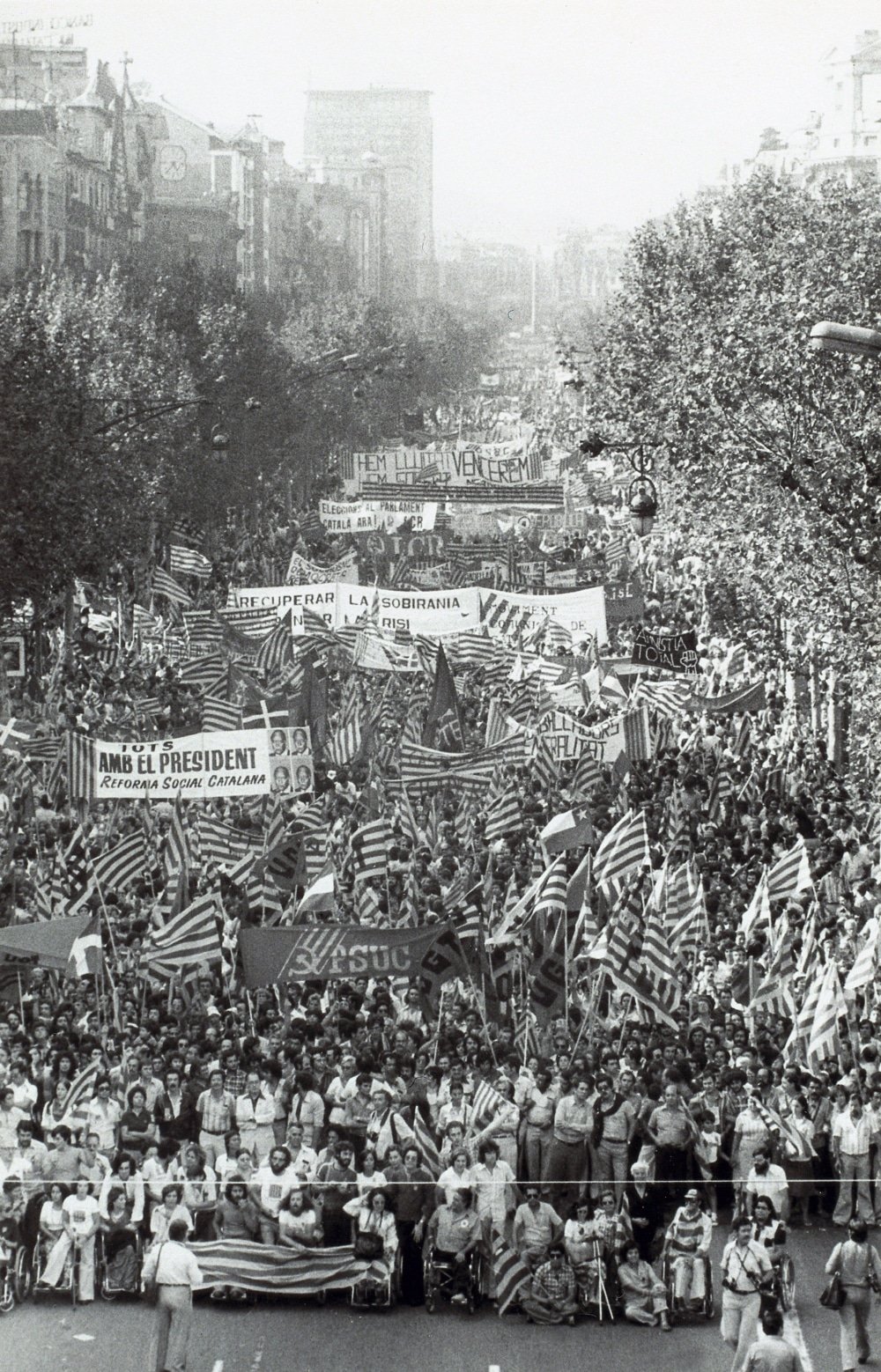
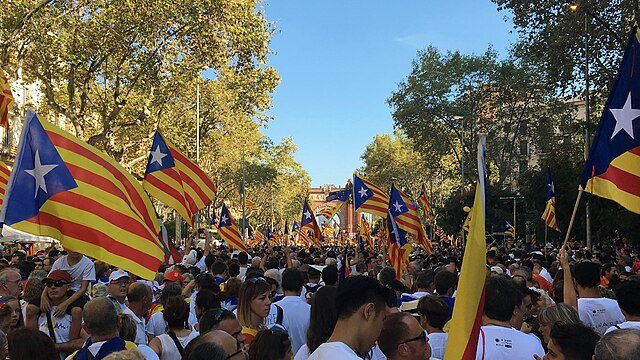
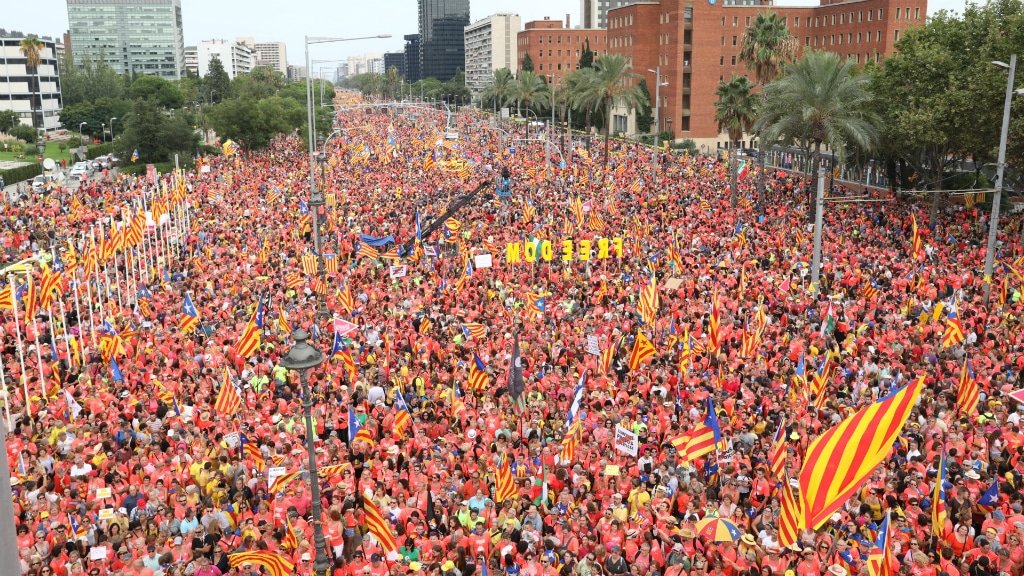
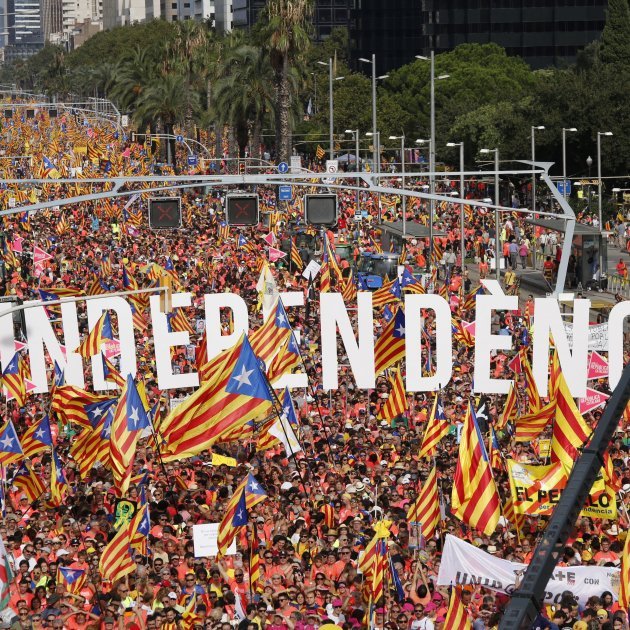
What La Diada means for Catalans today
La Diada is both a day of remembrance and a day of identity. For many, it represents the resilience of Catalonia’s history and its ongoing cultural distinctiveness within Spain.
Symbols everywhere
Visitors quickly notice the presence of the senyera (the official Catalan flag) and the estelada (the independence flag). Music and the Catalan national anthem, Els Segadors, echo through the streets. The atmosphere is festive, emotional, and for some, strongly political.
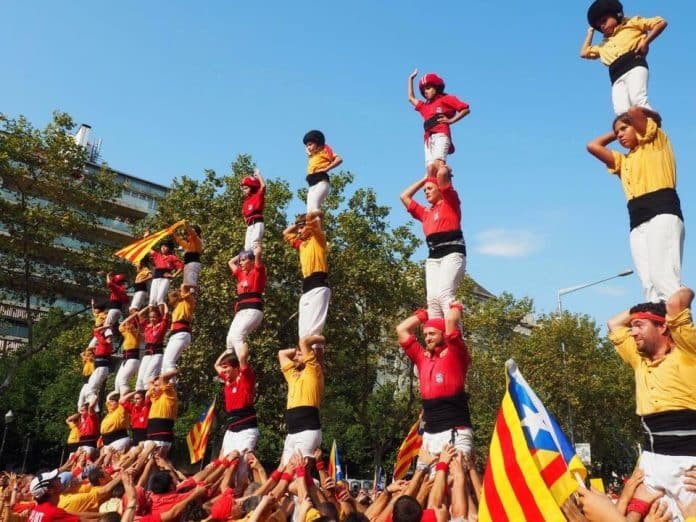
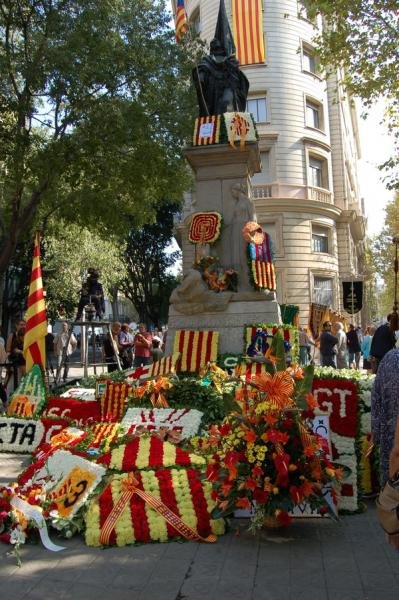
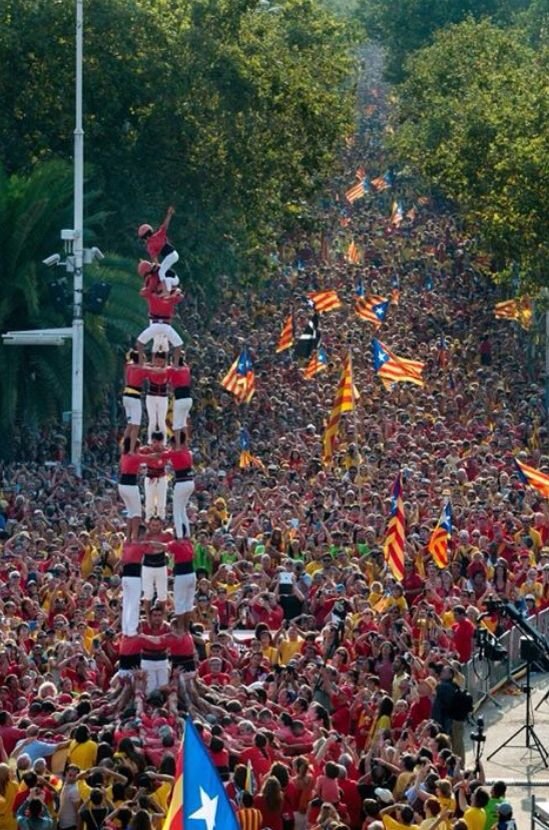
How La Diada is celebrated in Barcelona
Floral offerings and official acts
The morning begins with political leaders and institutions offering flowers at the monument to Rafael Casanova and at other historic sites.
Demonstrations and atmosphere
Throughout the day, large demonstrations are organized, especially in Barcelona. Streets fill with people wearing the Catalan flag, singing, and chanting. For first-time visitors, the energy can be overwhelming yet fascinating.
Music, culture, and tradition
Beyond politics, the day also features concerts, castellers (human towers), parades, and cultural activities. The mix of tradition and civic participation makes it one of the most vibrant days of the year.
Practical tips for visitors on September 11
Are shops and businesses closed?
Yes, September 11 is a public holiday in Catalonia. Most shops, banks, and offices remain closed, though many restaurants and cafés stay open, especially in central areas.
Where to experience La Diada in Barcelona
The key places are the Rafael Casanova monument, Passeig de Gràcia, and Plaça Sant Jaume in the Gothic Quarter. These are where ceremonies, demonstrations, and performances are most visible.
Transportation and crowds
Public transport runs, but expect changes and large crowds in central areas. Streets may be blocked for demonstrations, so allow extra time if you plan to move around.ation makes it one of the most vibrant days of the year.
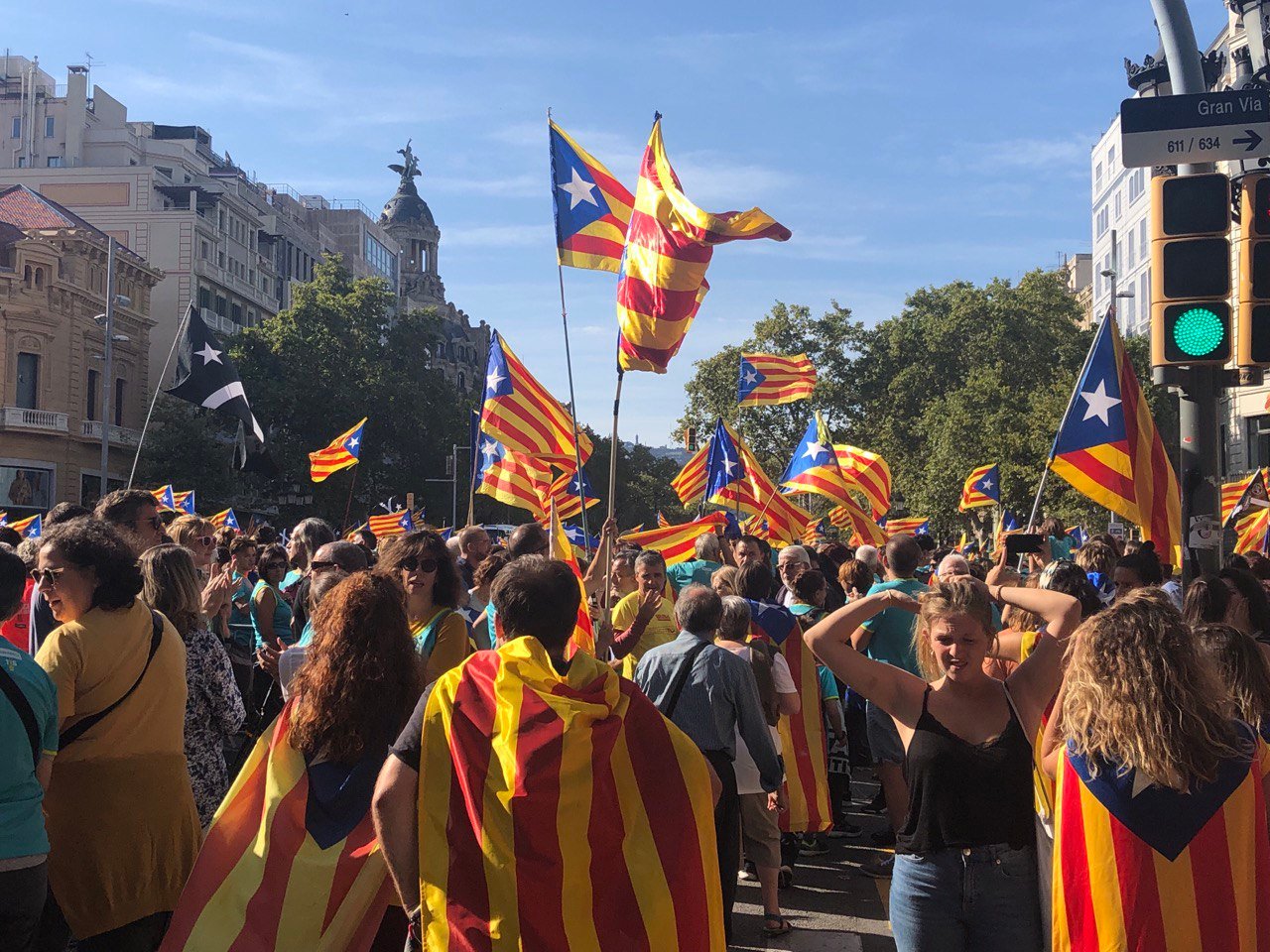
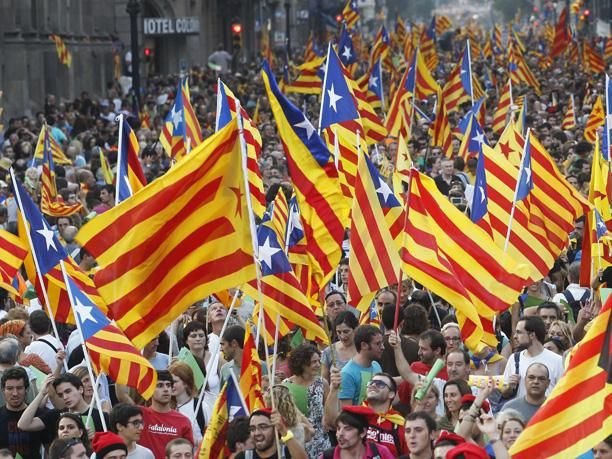
Visitors’ impressions: seeing La Diada for the first time
For many international visitors, La Diada is a surprising discovery. The sight of entire streets filled with flags, the sound of independence chants, and the festive yet solemn atmosphere leave a lasting memory. Some describe it as one of the most powerful cultural experiences they encountered in Barcelona—where history, politics, and community spirit blend into one.
Frequently Asked Questions about La Diada
- What happens on Catalonia National Day?
Commemorations, floral offerings, demonstrations, and cultural events.
- Is everything closed on September 11 in Catalonia?
Most businesses close, but restaurants and leisure activities remain available.
- What do Catalans celebrate on September 11?
The fall of Barcelona in 1714 and the memory of lost freedoms.
- Is September 11 a holiday in Barcelona?
Yes, it is a regional public holiday across Catalonia.
- Can tourists join the events?
Absolutely. While demonstrations are political, the cultural activities and atmosphere are open to everyone.
Conclusion: a day to understand Catalonia’s identity
For Catalonia, La Diada is not just a holiday—it is a day of memory, identity, and expression. For visitors, it offers a unique chance to witness living history on the streets of Barcelona. Whether you come for the concerts, the traditions, or simply to watch the sea of flags and chants, September 11 in Catalonia is a day you won’t forget.
